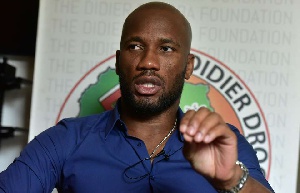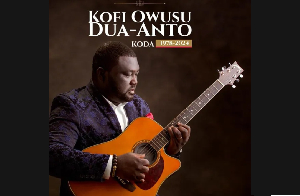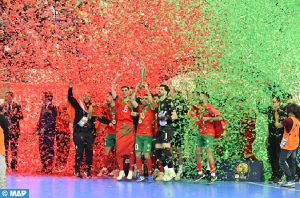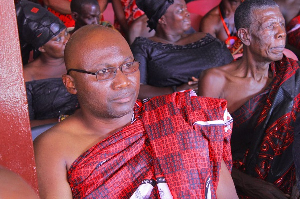Opinions of Tuesday, 23 February 2010
Columnist: Okoampa-Ahoofe, Kwame
The Survival of Languages is Economically Determined, My Dear Arch- Nemesis!
By Kwame Okoampa-Ahoofe, Jr., Ph.D.
In recent days, I have been engaged in spirited discussions about the dominance of some languages over others. The obvious examples are the great colonialist/imperialist languages, largely Western European and Asian, such as English, Spanish, French, Chinese (Mandarin), Hindi and Arabic. Originally, many of these languages established themselves through military conquest and sustained self-advertisement (or propaganda) vis-à-vis their philosophical (largely ethical or moral) and cultural values. Of course, concomitant with the foregoing concerned the collective genius of the people who spoke these dominant languages relative to their neighbors. The latter dimension has become markedly pronounced, especially in our time when technology and commerce have tended to replace sheer brute force, or military prowess, for the most part.
Needless to say, the primal notion of strength residing in numbers is also true of both the availability and abundance of talent, particularly where societies are functionally and efficiently organized. And by the latter is meant something akin to the concept of the “Welfare State,” with almost each and every citizen or resident afforded fairly equal access to healthcare facilities, education and professional enskillment as well as equal employment opportunities. The foregoing become magnets for population concentration, urbanization and the development of advanced civilizations. For by nature, human beings prefer to drift towards locations where they stand a greater chance for economic, cultural, professional and intellectual advancement. And this largely explains, in our time, why Africans, in particular, and people from the so-called Third World, in general, have tended to gravitate heavily towards centers of great technological and economic efficiency, even when they do not find themselves to be particularly welcome.
Now, on the question of linguistic dominance, the logic is pretty much the same as the preceding observations: which is fundamentally that wherever humans sense their basic needs and aspirations to be better satisfied, they are invariably willing to trade some aspects of themselves and their cultures for the perceived, or palpable, comfort and safety that a new, or even an alien, society may promise. And oftentimes language is the first expendable casualty. Taken to a larger scale, it is this expedient process of “Natural Selection” that has effectively guaranteed that some languages are going to fare better than others and, in fact, even vanish altogether.
Thus, I was recently amused to no end, almost, when a self-described crusading northern Ghanaian writer published an article titled “Let Us Save the Ga Language” (Ghanaweb.com 2/18/10). The thrust of the writer’s argument was simply that the dominant linguistic group of Ghana, Akan, was fast swallowing up the indigenous language of the people of the Ghanaian capital of Accra. What was interesting, though, was the quaint fact that while the writer, presumably an instructor of language, strongly felt that his own unspecified northern native tongue was, to be certain, equally threatened by the Akan language, nonetheless, he also felt it to be imperative for the Ghanaian government to step in and promptly rescue the Ga-language from its decidedly hostile Akan predator. For some reason, the writer had decided that being indigenous to the Ghanaian metropolis, Ga had an inviolable right not only to exist, but to do so as the dominant language of Accra.
The foregoing argument, while apparently democratic in thrust, at least on the face of it, was unmistakably tinged with envy. For starters, the writer had assumed, without the scholastic presentation of any iota of sustainable historical evidence, that the Akan(s) are recent emigrants of Accra, almost implicitly as recent as their northern neighbors and relatives, in fact. The very fact of the matter is that had he been even tangentially, or at least glancingly, interested in studying the economic, social and political history of the Ga, the writer would have discovered to his utter shame and embarrassment that native-Ga monarchs, or chiefs, with Akan names have occupied the Tackie “Tawia(h)” paramountcy for close to some three-hundred years now!
And yes, apparent “bilinguality” with Akan must have “degraded” the purity of the Ga-language, whatever the latter means – even excepting the organic fact of the fluxional or constantly evolving nature of living languages – in reality, what the writer may be clearly ignorant of is the incontrovertible fact that easily about half of the native-Akan population of Accra effectively speak and appreciate the Ga-language with varying degrees of facility and felicity, as might be naturally expected. And had the rather exuberant critic bothered to conduct even a cursory analysis of the two seemingly discrete linguistic groups, he would have healthily discovered that Ga has almost become as organically “Akanized” even as Akan may also aptly be seen to having become quite “Ga-ized.”
Ultimately, what the critic appears to be slyly advocating is the enactment of a statute quixotically aimed at the systematic “de-Akanization” of Accra, both in terms of population concentration and linguistic spread and reach. Maybe the morbidly addled critic needs to be bluntly sobered by the fact that in just about two decades hence, effectively two-thirds of Ghana’s population would have been “Akanized” in one way or another. Furthermore, the patently absurd notion of linguistic preservation for the sake of stalling a natural progression is simply that – unpardonably absurd!
And for the benefit of readers who may not be aware, I have avoided any mention of the name of this anti-Akan critic because we once crossed swords over the immutable need for justice to prevail at all levels of Ghanaian society, without the boorish and cowardly provision of any constitutional hedges for the untenable protection of certified assassins and butchers and pseudo-revolutionaries. In a bleeding-hearted rejoinder to an article that I had published on Ghanaweb.com, the dude actually charged me with the “abominable” crime of making the children of one particularly, notoriously self-righteous and megalomaniacal pseudo-revolutionary ineffably miserable. He would also, curiously, succeed not only in getting the webmaster to delete my article from the website, just within three or four hours of its publication but also, in fact, get my articles proscribed from Ghanaweb.com for several months, in the specious name of defamation.
*Kwame Okoampa-Ahoofe, Jr., Ph.D., is Associate Professor of English, Journalism and Creative Writing at Nassau Community College of the State University of New York, Garden City. He is also a Governing Board Member of the Accra-based Danquah Institute (DI), the pro-democracy think tank, and the author of 21 books, including “The New Scapegoats: Colored-on-Black Racism” (iUniverse.com, 2005). E-mail: okoampaahoofe@aol.com.
###












